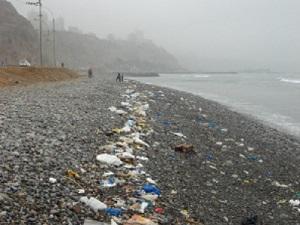Daniel Abugattas
This project aims to create and statistically validate a psychometric instrument for the assessment of knowledge levels, attitudes and behaviours towards marine biodiversity and conservation by people in Lima.

As more complex marine conservation strategies begin in Lima, the lack of information on the knowledge and attitudes that the population has concerning marine issues, becomes evident and a barrier for identifying and quantifying positive conservation outcomes.

The coastal marine ecosystem around Lima is profoundly degraded; this degradation continues to advance because of improper individual behaviour, group actions and national policies on waste disposal and fisheries. Thus, there is an immediate need for understanding the attitudes and behaviours towards marine wildlife of the coastal population in Peru. Such understanding will provide valuable information to guide future public awareness campaigns and enhance marine conservation strategies aimed at changing these behaviours and policies. To date, there is no data concerning this issue and no instrument to measure it. There are few campaigns and initiatives to promote pro-environmental behaviour in the area, all of which enter blindly to the subject, applying their strategy with no regard for the real behavioural and psychological relationships that exist between the marine ecosystem and its most influential user, people. Furthermore, the results and impacts of such campaigns cannot be measured objectively in terms of behavioural modification and attitude change because there is no baseline data to compare these variables before and after campaigns. I address both of these problems through the development of a tool to measure attitudes towards marine ecosystem conservation.
This instrument will provide conservation biologists with a new, reliable tool enabling them to measure their impacts and identify the behavioural and attitudinal aspects leading to better conservation results. Statistical validation of the instrument will be carried out through a first survey carried out in the Miraflores bay area, one of the most densely populated districts of the coastal area of Lima (population = 93.000 / Area = 9.62km²) and with the most representative range of socioeconomic distribution. The results obtained here are to be used as baseline data and will be made available to all future researchers that intend behavioural or attitudinal modification for conservation purposes. The major contribution of the present project is the opening of the field of Conservation Psychology in Peru, and the possibilities for replication and adaptation of the tools here developed along the Peruvian coastline, the richest marine ecosystem in the world.